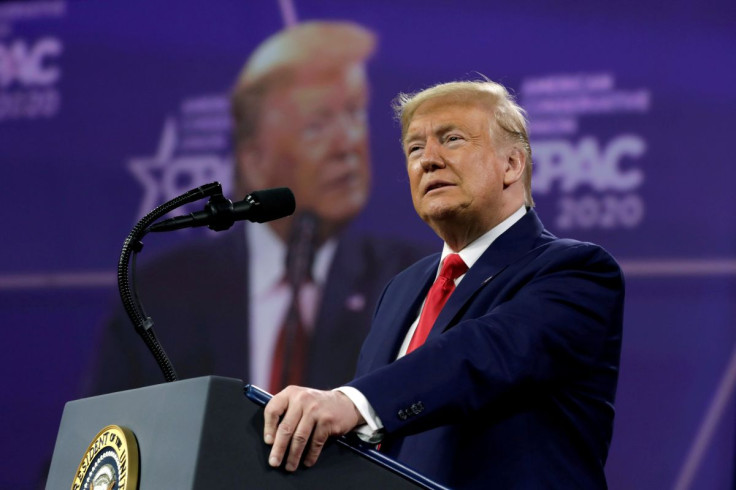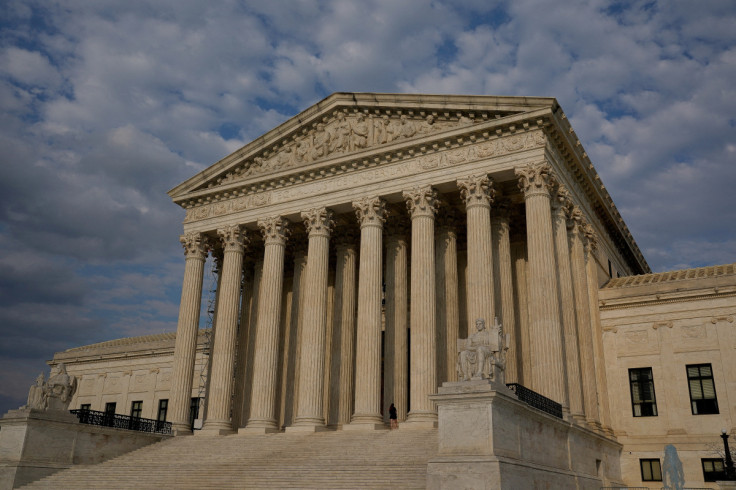
Allies of presumptive Republican nominee Donald Trump are already planning to upend civil right laws to focus on "anti-white racism," rather than discrimination against people of color, Axios reported on Monday.
Concretely, the push would target both "decades-old policies aimed at giving minorities economic opportunities, to more recent programs that began in response to the pandemic and the killing of George Floyd."
"As President Trump has said, all staff, offices, and initiatives connected to Biden's un-American policy will be immediately terminated," said Trump campaign spokesperson Steven Cheung about the issue.
"Every institution in America is under attack from this Marxist concept of 'equity,' " Trump said in 2023, Axios recalled. "I will get this extremism out of the White House, out of the military, out of the Justice Department, and out of our government."
At the center of the efforts is America First Legal, an organization founded by former Trump aide Stephen Miller, who has said this is conservatives' answer to the American Civil Liberties Union (ACLU).
The group has already began with efforts of the kind, achieving success in some of the lawsuits pushed. One of them successfully blocked the implementation of a pandemic-era $29 billion program for women and minority restaurants, arguing it discriminated against white-owned businesses.
Initiatives of the kind have multiplied over the past months, a recent one involving the the Smithsonian's National Museum of the American Latino. Following such a lawsuit, the entity stated that a Latino-focused internship program is now "equally open to students of all races and ethnicities."
The lawsuit claimed the Smithsonian's Latino Museum Studies Program undergraduate internship violated the US Constitution by discriminating based on race and ethnicity, stating the program hadn't hired any non-Latino interns in the past two years it operated, 2022 and 2023.
"When the Alliance sued, the Museum said the internship was 'for Latina, Latino and Latinx-identifying undergraduate students' and focused on 'increasing the representation of Latina and Latino museum professionals," the American Alliance for Equal Rights said in a statement.
In a settlement agreement filed Tuesday, the Smithsonian agreed to add a statement to its application that the internship does not give preference or restrict "selection based on race or ethnicity."
Following the settlement, the internship program's website now says in bold: "The Undergraduate Internship is equally open to students of all races and ethnicities, without preference or restriction based on ethnicity. The Museum does not use racial or ethnic classifications or preferences in selecting awardees for the Undergraduate Internship."
Another salient episode took place last year, with the Supreme Court ruling that ended the use of race and ethnicity as criteria for college admissions. In this case, most Latinos said the decision was "mostly a good thing," according to a new Gallup poll.

Concretely, 68% of Latinos agreed with the mentioned statement, in line with the country average. Whites stood above this figure, with 72% saying this was the case, while Black adults disproportionately disagreed, as 48% said this was "mostly a bad thing."
Latinos, on their end, were more likely to view the decision as positive for higher education in the country but were mixed in terms of the impact it would have in the demographic. For the first question, 45% of respondents said it would have a positive impact, while 22% said it wouldn't have any effect and the remaining 32% said this would be negative.
The impact of the Students for Fair Admissions v. Harvard ruling will begin even before authorities have to make a decision: 43% of Latinos said that the ruling will have "a great deal" or "a fair amount" of impact on their decision about which colleges they might apply to. 48% of Blacks and a staggering 73% of Asian Americans gave the same answer.
© 2024 Latin Times. All rights reserved. Do not reproduce without permission.







